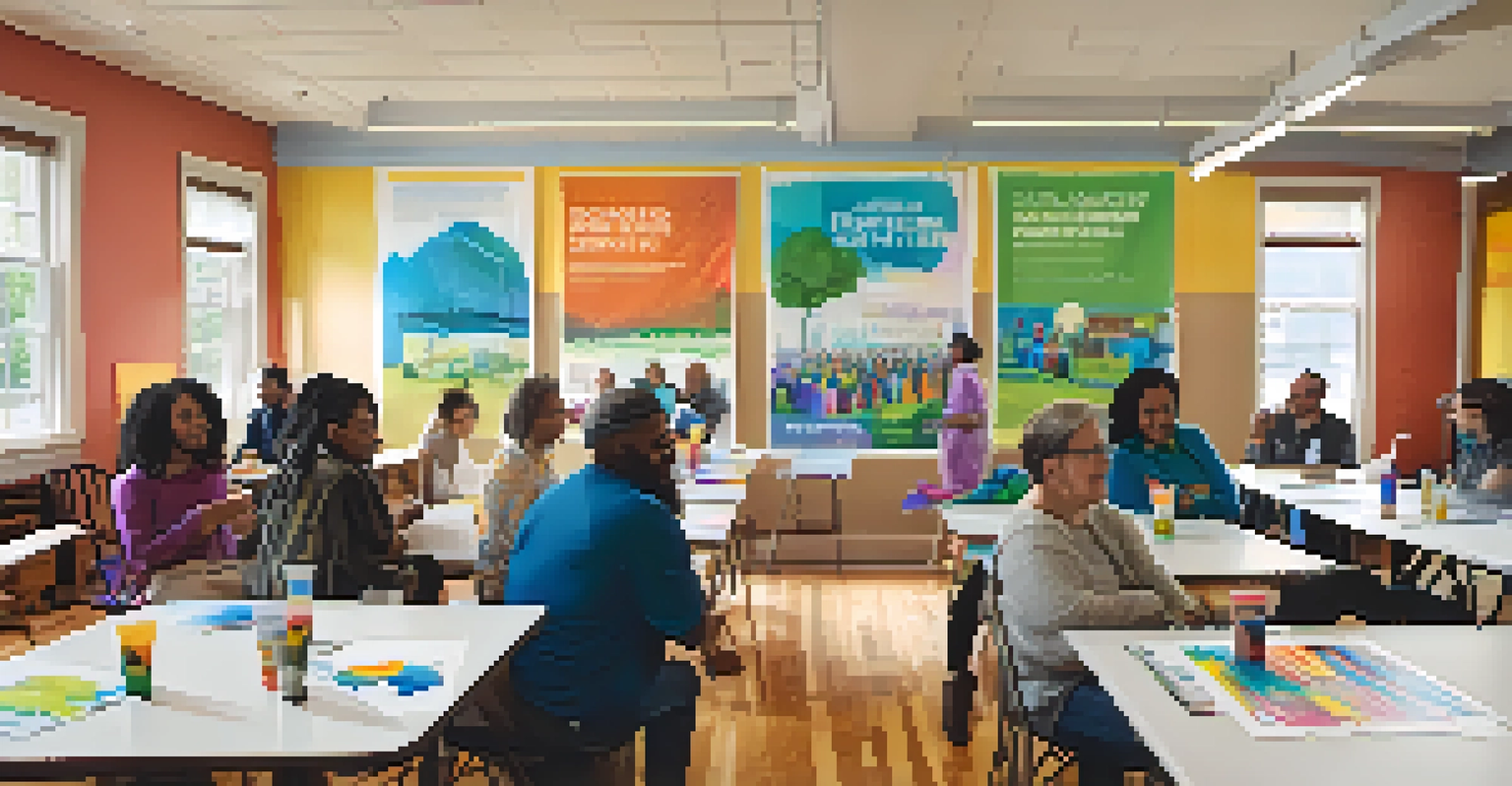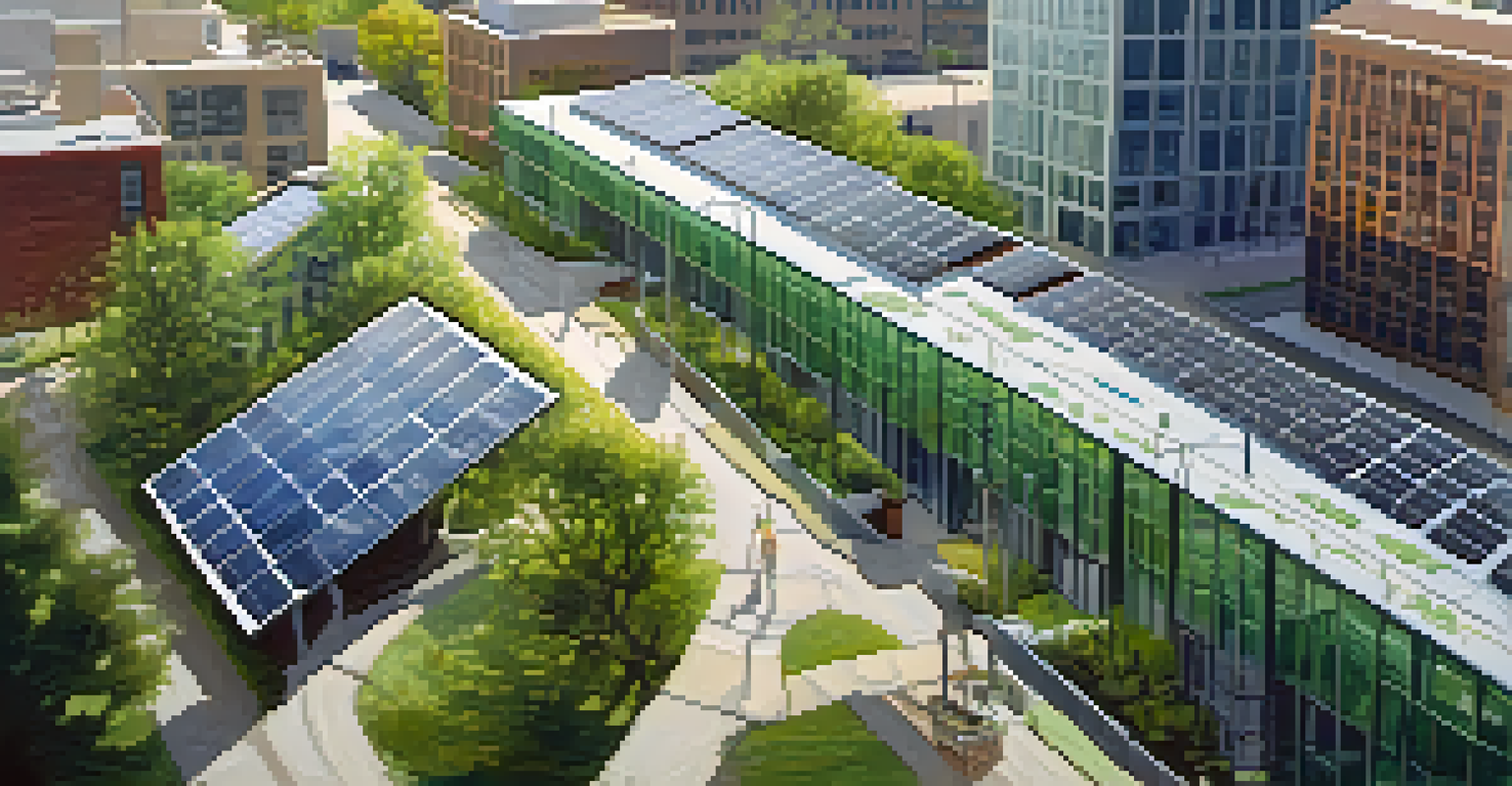Minneapolis Economic Resilience: Lessons from Recent Trends

Understanding Economic Resilience in Minneapolis
Economic resilience refers to a city's ability to adapt and recover from challenges. In the case of Minneapolis, this quality has been tested by various events, from economic downturns to social upheavals. The city has shown a remarkable capacity to bounce back, which is crucial for maintaining the well-being of its residents.
Resilience is the capacity to recover quickly from difficulties; toughness.
Minneapolis serves as a prime example of how urban areas can thrive despite adversity. This resilience is not just about recovery; it also involves learning from past events to build a stronger economic foundation. The lessons learned here can be valuable for other cities facing similar challenges.
By examining Minneapolis's approach to economic resilience, we can uncover strategies that are effective in fostering long-term growth. This involves not only addressing immediate concerns but also investing in sustainable practices that can withstand future shocks.
The Role of Diversity in Economic Growth
One of the key factors contributing to Minneapolis's economic resilience is its diverse economy. From healthcare to technology and manufacturing, the city's varied sectors have helped cushion the impact of downturns. This diversity allows for greater flexibility and innovation, as different industries can support each other during tough times.

For instance, during the COVID-19 pandemic, while some sectors struggled, others thrived, helping to stabilize the local economy. This interconnectedness demonstrates the importance of having a broad economic base. It also highlights how a community can leverage its strengths to adapt to changing conditions.
Minneapolis Shows Economic Resilience
The city has demonstrated its ability to adapt and recover from economic challenges, maintaining the well-being of its residents.
Diversity is not just about industry; it also encompasses the workforce. A population with varied skills and backgrounds fosters creativity and problem-solving, essential ingredients for economic resilience. Minneapolis has made strides in promoting inclusivity, which is a vital part of its economic strategy.
Impact of Local Policies on Economic Stability
Local government policies play a crucial role in shaping economic resilience. In Minneapolis, city leaders have implemented measures aimed at promoting stability and growth, particularly in times of crisis. These policies often focus on supporting small businesses, which are the backbone of the local economy.
In the middle of every difficulty lies opportunity.
For example, initiatives that provide financial assistance and resources to entrepreneurs have been essential during challenging times. Such support not only helps businesses survive but also contributes to job creation and overall economic health. This proactive approach has positioned Minneapolis to better weather economic storms.
Moreover, transparent communication between local government and residents fosters trust and collaboration. When the community feels informed and involved, it strengthens the partnership needed to navigate economic challenges together.
Lessons from the COVID-19 Pandemic
The COVID-19 pandemic presented unprecedented challenges for cities worldwide, including Minneapolis. However, the city's response highlighted its economic resilience and the ability to adapt quickly. This experience has provided valuable lessons on the importance of preparedness and flexibility in policies.
One significant takeaway is the need for rapid response mechanisms that can be activated during emergencies. Minneapolis's ability to pivot and support businesses and workers during lockdowns demonstrated the effectiveness of such strategies. It also underscored the importance of community solidarity in overcoming crises.
Diversity Fuels Economic Growth
Minneapolis's varied economic sectors and inclusive workforce contribute to stability and innovation during downturns.
Additionally, the pandemic accelerated trends like remote work and digital transformation. Minneapolis has embraced these changes, positioning itself as a forward-thinking city that harnesses technology for economic growth. This adaptability will likely play a crucial role in future resilience efforts.
Community Engagement: A Pillar of Resilience
Community engagement is vital for fostering economic resilience. In Minneapolis, initiatives that involve residents in decision-making processes have proven effective in building a strong local economy. When people feel their voices are heard, they are more likely to invest in their community's future.
For example, local forums and workshops allow residents to share their ideas and concerns, leading to more effective policies. This collaborative spirit not only strengthens community bonds but also empowers individuals to take part in shaping the local economy. Engaged citizens can drive innovation and contribute to sustainable practices.
Moreover, community engagement creates a sense of ownership over local economic initiatives. This shared responsibility encourages residents to support local businesses and initiatives, fostering a culture of resilience. Minneapolis exemplifies how active participation can lead to a thriving, resilient economy.
Sustainability and Economic Resilience
Sustainability has become increasingly important in discussions about economic resilience. Minneapolis has recognized that integrating sustainable practices into its economic framework is not just good for the environment, but also for long-term economic health. This approach prepares the city for future challenges and enhances its overall resilience.
For instance, investments in green infrastructure and renewable energy create jobs while addressing climate change. Minneapolis's commitment to sustainability can attract businesses and residents who prioritize environmental responsibility. This alignment of values can lead to a more robust economy.
Community Engagement Strengthens Economy
Active involvement of residents in decision-making processes fosters a strong sense of ownership and drives local economic initiatives.
Additionally, sustainable practices often result in cost savings over time. As businesses adopt energy-efficient technologies, they can reduce operational costs while contributing to a greener community. This dual benefit reinforces the idea that economic resilience and sustainability go hand in hand.
Future Outlook: Building on Resilience
Looking ahead, Minneapolis has the opportunity to build on its economic resilience. By learning from recent trends and challenges, the city can continue to create an environment that supports growth and innovation. Future strategies should focus on enhancing existing strengths while remaining adaptable to change.
Investing in education and workforce development will be key to preparing residents for the jobs of tomorrow. Fostering partnerships between educational institutions and local businesses can create a pipeline of skilled workers ready to meet emerging demands. This proactive approach ensures that the workforce remains competitive.

Moreover, continued emphasis on community engagement and sustainability will further strengthen the city’s resilience. By involving residents in economic planning and prioritizing sustainable practices, Minneapolis can pave the way for a vibrant, resilient future that benefits all.